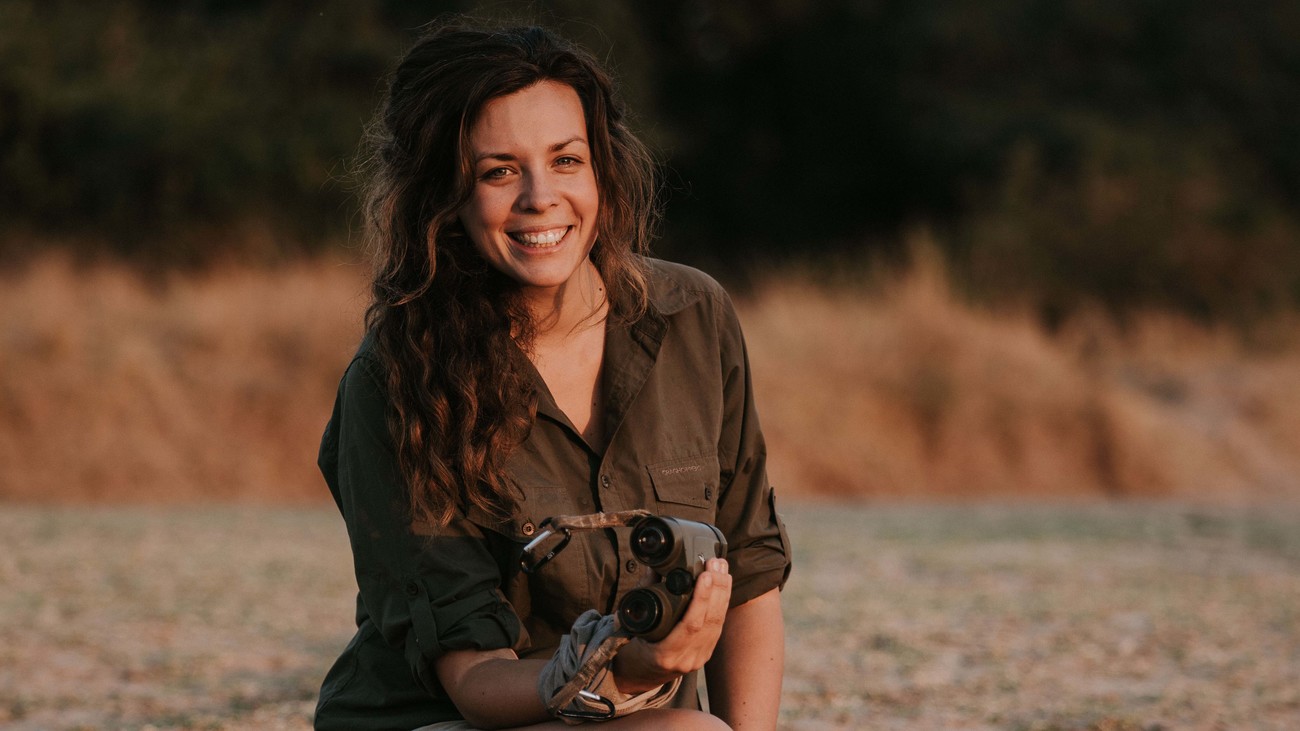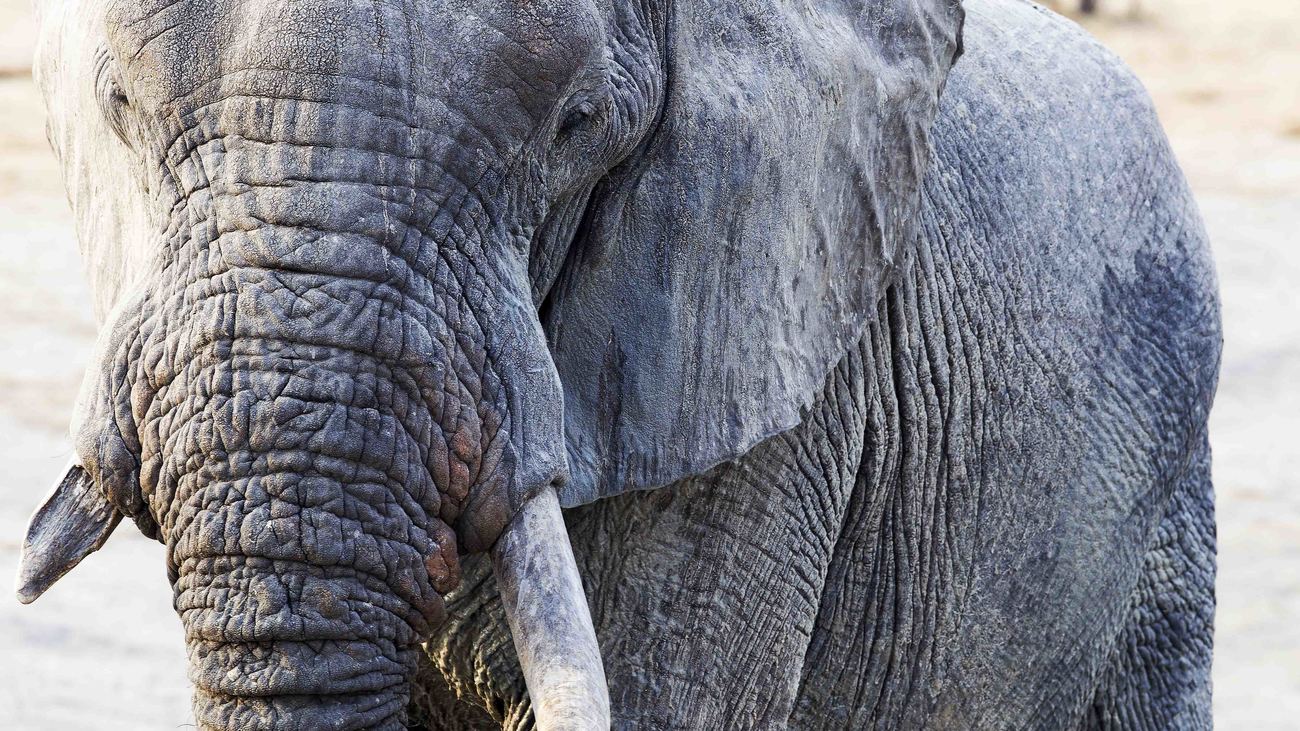a discussion with Gesa Neitzel on African wilderness and eco-tourism
a discussion with Gesa Neitzel on African wilderness and eco-tourism

We are proud to announce German author and safari guide Gesa Neitzel as our newest IFAW Ambassador. IFAW Ambassadors serve as champions for the brand, using their voices to amplify our work and advocate for our vision. Gesa shares IFAW’s conviction that animals and humans can only thrive together—not one at the expense of the other—and that every animal counts in the process towards making this a reality. Read below a conversation with Gesa about her conservation initiatives in Africa.
You visited the IFAW-supported GRI (Game Rangers International) elephant nursery in Zambia. What did you witness there and was there something that particularly struck you?
I had long wanted to visit the nursery in Lusaka, as Zambia is a country I deeply care about and I was longing to learn more about the plight of the elephant population in Zambian national parks.
What struck me most were two things:
- This is not a facility where contact with the orphaned animas is encouraged, or even allowed. Only a few carers stay close to the elephants, ensuring 24/7 support. If you’ve come here hoping for a close-up selfie with an elephant baby – you’ve come to the wrong place.
- GRI works closely with the local communities who live in the villages bordering the national parks where elephants roam. They are the ones who have to live with these (not always so gentle) giants at their doorstep. To have these people benefit from the presence of elephants and other wildlife is crucial.
How did you become interested in conservation?
In 2015 I spent a year in different Southern African countries to train as a safari guide. This education flared my interest in conservation. Today, I write books to my loyal German readership about the African wilderness, animal welfare and eco-tourism. With this privilege came the desire to incorporate conservation into my work, and spread awareness for projects aiming to ease human-wildlife-conflicts across the globe.
Based on your extensive travels across Africa, what do you think is the most urgent conservation issue facing the African continent?
It’s hard to name just one issue, as they all blend into each other. Corruption needs to end far and wide; African communities urgently need to be lifted out of poverty, but not at the expense of natural ecosystems and wildlife. That is the tightrope act. Local communities need to benefit big time from the presence of lions, elephants, and leopards—much more than they are threatened by them, otherwise there is no incentives to protect the last of our world’s megafauna. I’m afraid the Covid-19-pandemic has put a strain on recent efforts of eco-tourism operators across the continent; as tourists stayed away, much needed money to run parks, employ rangers and safari staff has failed to materialize as well, resulting in much higher poaching numbers. Now more than ever, donations are needed to keep African wilderness areas afloat, protect endangered species, and support the livelihoods of the African people.
What advice would you give to people eager to contribute to conservation efforts in Africa?
In my opinion there are three great ways in which you can help:
- Support NGO’s such as IFAW with long term donations. I’m saying long term because, talking to the people on the ground, I learned that it’s incredibly important for any organisation to be able to plan far ahead. Many donors give money spontaneously, unplanned, and in irregular intervals—which is great in its own right—but it’s so, so important for NGO’s to plan for the long term as well, knowing how much money comes in regularly. If we all set aside a certain monthly amount, we allow for organisations to plan ahead, and we incorporate positive change into our daily lives!
- Go on safari. I know “flight-shaming” has been on the rise recently because of the climate-crisis. And while I do not advocate for mindless jet-setting around the globe, I do believe there is still a place for eco-tourism, maybe now more than ever. I can speak from my own experience what a difference it has made in my life, to encounter elephants in the wilds. I would never have cared so much about them, had I not seen them in their natural habitat. Tourist money funds the national parks and employs the local community… And elephants do have the cheeky habit of turning each safari-goer into a lifetime- ambassador for the wilds.
- Share what you care about on social media. No matter how small of a following you think you might have—you never know who you might reach with your post. People often complain about Instagram, but if used effectively, these platforms are our best hope to spread important matters fast. It feels good to be involved and become an advocate for things that matter.

What changes regarding African wildlife have you witnessed yourself on the ground over the course of your time in Africa?
The worse the poaching and the trophy hunting in an area has been over the decades, the smaller the tusks of the elephants. In some places, herds don’t even have tusks any more. This is due to the fact that the so-called “big-tuskers” are highly sought after. The more ivory, the more money is to be made. As a result, only elephant genes with smaller or no tusks managed to survive the slaughter, simply because they weren’t targeted in the first place.It always saddens me to witness elephant behaviour in highly poached areas. They are terrified of humans, they are disturbed, and what’s worse, they lack the knowledge of survival which was never passed down by older generations.
Rhino sightings have become increasingly rare. The Kruger National Park used to be a stronghold for white rhinos, but because of illegal poaching, you really do notice less and less of them around.
A positive I’ve noticed is how local communities are successfully deploying methods and ways in which to coexist with the wildlife. Beehives and chili-farms are a great way to keep elephants at bay, for these pachyderms really detest both.
Out of all your interactions with animals in Africa over the years, what experience has affected you the most?
In Namibia, I once saw an elephant calf caught in a fence. It got separated from its mother when farmers chased the herd away from their crops. Although the calf was rescued, it didn’t survive the separation from its mother in the end; it was just too small. That was absolutely heart breaking.
On the flipside, every encounter with wild animals, especially on foot, is such a special experience. It’s not about getting as close as possible to the animal—on the contrary: I prefer when they don’t even know I’m there. But to watch wildlife in its natural habitat always feels like being let in on a secret. It can remind us of our own place in this world; it helps us to come back to ourselves.
Which personal lessons have you been able to take away from your time in Africa so far?
The most important lesson I’ve learned is that we are a part of nature—not apart from nature. We are living, breathing, feeling creatures, and each and every one of our steps has an impact on this world. I think these days, it is crucial we remember this, and find ways to live alongside the other creatures who are living, breathing, feeling just like us.
Which animal that you have encountered during your travels and safaris in Africa is your favourite and why?
The African elephant. Yesterday, tomorrow, and today. Elephants are the most intelligent, sentient, fun, loving, caring creatures. They are like humans—only more so. We can learn a lot from the way they raise their young, interact with their environment, mourn their dead.
How did you make the decision to swap your secure life in Berlin for the unknown in the African wilderness?
I had long wanted to quit my job in Berlin. Life in the capital had me feeling annihilated from nature. I longed to feel the ground beneath my feet again, and most importantly, find a job where I could make a difference. I think these days more and more people are awakening to this realisation. With biodiversity loss, climate change, and deforestation threating our very existence, we’re questioning what it means to be human. I still have a while to go before I live fully in harmony with nature again—I guess we all do—but if there’s one thing I would like to do for the rest of my life, it would be to try and get as close as possible to re-wilding myself, and maybe inspire a few people along the way to do the same.
Related content
Our work can’t get done without you. Please give what you can to help animals thrive.